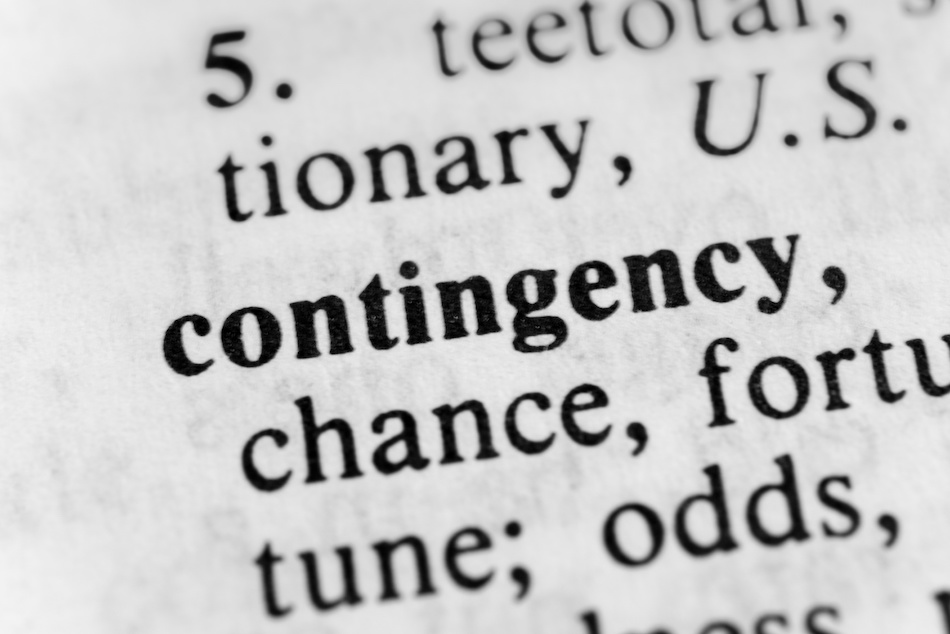What to Know About Home-Buying Contingencies
Posted by Gary Ashton on Thursday, September 13th, 2018 at 9:10am.
 Buying a home is a huge decision, not only because of how much they cost, but because there are a lot of moving parts that affect the purchasing process. Various types of safeguards are put in place during the normal home buying process that work to protect both the seller and the buyer, and in most cases, they are referred to as contingencies. What do these contingencies mean and how can they help a buyer? Let’s explore three common ones and how they work.
Buying a home is a huge decision, not only because of how much they cost, but because there are a lot of moving parts that affect the purchasing process. Various types of safeguards are put in place during the normal home buying process that work to protect both the seller and the buyer, and in most cases, they are referred to as contingencies. What do these contingencies mean and how can they help a buyer? Let’s explore three common ones and how they work.
Contingencies To Be Aware Of
While contracts can vary from home to home, the three main home buying contingencies that people should be aware of are financing, appraisal, and inspection contingencies. In all of these scenarios, they help protect the buyer from having to remain in a contract for purchasing a home they either no longer want or cannot afford.
A financing contingency means that the buyer stipulates they have a certain period of time to get approved for a home loan, and protects people from being obligated to purchase a home even if they can’t secure financing. In the instance of an all cash home purchase, this contingency would not usually be required.
Including an appraisal contingency in a contract is crucial for the buyer as well, as they are agreeing to a purchase price before knowing how much the home is truly worth. Once the home has been appraised, this contingency can help navigate any gaps between the property’s value and the agreed upon price.
Inspection contingencies are very important for buyers, as this will allow them to back out of a purchase if an inspection comes back with unfavorable news. It also gives the option for the buyer and seller to negotiate repairs before the purchase is finalized.
Should You Consider an Escalation Clause When Buying a Home?

When you are buying a home there is always the potential for a multiple offer situation to occur. This basically means more than one person is bidding on the home at the same time. In these types of situations it’s not uncommon for home buyers to use what is known as an escalation clause.
What’s the Purpose?
The purpose of an escalation clause is to try to eliminate as much competition as possible. Basically, the clause would state the buyer will pay a certain amount above the highest bidder. This amount can be anywhere between $100 all the way up to hundreds of thousands. To ensure the buyer doesn't go over their budget, there is usually a ceiling cap included.
Here is how a typical escalation clause might read. Buyer agrees to pay $5,000 more than the highest bid received by the seller. However, the total sales price cannot exceed $400,000. If there is a chance for other buyers to significantly raise the price of the home, be sure to include a ceiling cap.
For Sellers
For sellers an escalation clause is often looked at as a bad thing. Anytime there is an escalation clause in play, the seller will no longer be able to provide counter offers to other interested parties. In essence, the seller stands to lose money.
For Buyers
For the buyer, an escalation clause can actually increase the chances of their offer being accepted. If you are the type of buyer who doesn't enjoy the suspense and tension that comes along with multiple offer situations, consider using an escalation clause. You will be able to set your own parameters and define how much you are willing to pay.
Please know escalation clauses aren't legal in every state. However, some agents will still suggest it to buyers. It may be better to just make your highest and best offer from the beginning. If it’s not accepting you can move on to something else.
What Could Go Wrong?
If a home buyer decides to opt out of any of these contingencies, they could potentially be on the hook for money they don’t have. For example, if they agree to purchase a home for $300,000 but the home is appraised for $350,000, they need to come up with the difference if the seller isn’t willing to negotiate.
Similarly, both the financing and inspection contingencies offer buyers the option to back out of the contract should something go wrong. Inspections can uncover all kinds of serious issues that would make the house completely undesirable, and financing might be harder to secure than the buyer initially planned.
Explore The Contract Carefully
Home buying contingencies may not be present in every home contract, so make sure to work with an experienced real estate professional and read everything before you sign. The ramifications could be very damaging if something comes up during the purchasing process and there isn’t a contingency to protect the buyer.
This information shouldn’t be a deterrent to home purchasing, as it can be an incredibly rewarding decision—especially if it's a decision that gets you into a great home in a great community like Gallatin. Ultimately, it’s up to each buyer to make sure they understand what they are agreeing to and ensure they have the resources to account for anything that goes wrong if no contingencies are in place.

Gary Ashton
The Ashton Real Estate Group of RE/MAX Advantage
The #1 RE/MAX team in the World!
